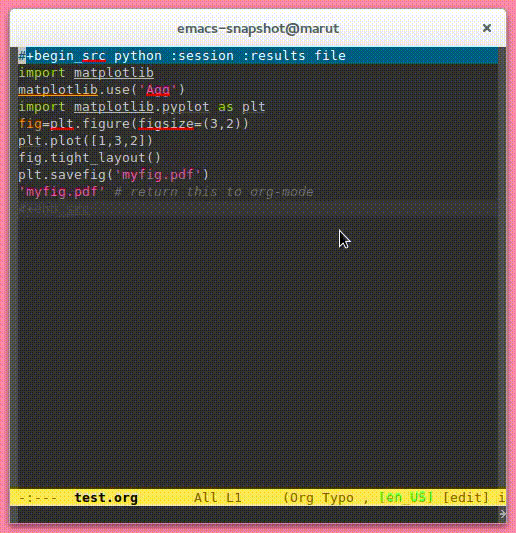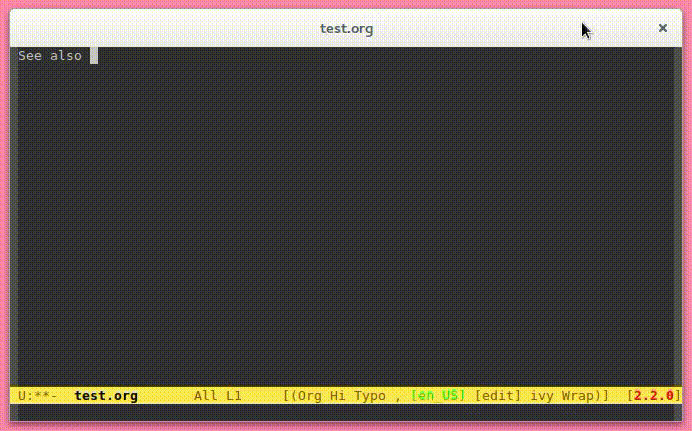Making Emacs a better tool for scholars
Erik Hetzner
egh@e6h.org
Personal note
- I work for the Public Library of Science (PLOS), an open access science publisher
- Before that, I worked for 8 years at the California Digital Library at the University of California
- I’ve been using GNU Emacs for 20 years 😮
- I expect to be using something like it for the rest of my life
- These are my personal experiences, as an Emacs user who has worked to support scholars and librarians
Introduction
- Scientists and humanists need better tools: we can help them
- The needs of scholars and programmers are remarkably similar
- To scholars (and writers): Emacs might be a tool worth learning
Misgivings
- I have never really been an Emacs advocate
- Emacs has a (somewhat deserved) reputation for being difficult
- Can Emacs work for “normal” people?
- I’m a tools nerd: probably we all are
- but many (most?) people just want to get on with their work
On the other hand
- The forward movement on Emacs in the past few years has been
amazing: thank you.
- easily installed packages
- testing
- new projects with excellent UIs (magit, helm, etc.)
- Emacs comes from an alternate universe of stable,
backwards-compatible, extensible software
- there isn’t much like it
- Emacs is here, now, solving problems
Scholars & programmers
- In many ways, our needs are similar
- Things that Emacs handles well:
Long term
- some aspects of our jobs are constantly changing, but others will remain throughout our careers
- as we learn new things, we need to keep some things the same
- we need tools that last, tools that grow with us
Refactoring
- Writing is all about refactoring
- moving around text
- rewriting
- reorganizing
Version control, collaboration
- All authors need version control, but they don’t have it
- Scientific writing is all about collaboration
- But most authors still email draft versions back & forth
Compilation
- almost every modern article, book, etc. will require some sort of
“compilation process”
- generating citations
- generating figures, graphs, charts
- managing cross references
- targeting multiple platforms (e-readers, print, web)
Coding
- an increasing part of scientific work
- computational biology
- physics
- computer science
- data science
ad-hoc solutions
- Sure, we’d like to create the “perfect” solution
- But we need to get stuff done
- Emacs means getting things done
Cross references, linking, searching, completion
- completion
- people out there are still typing names, references, etc. by hand!
- cross references
- finding a needle in your project haystack
- managing code bases/projects consisting of lots of files
Reproducible research
- The idea that data & code should be published along with an article
- Bringing software engineering to science
- Solutions often similar to literate programming
- Solutions:
- org-mode (babel)
- knitr
- ipython
Packages
Org mode
- Emacs’s secret weapon
- Originally written by an astronomer
- Probably brings more scholars to Emacs than anything else
Org mode (babel)
Babel is Org mode’s secret weapon.
Org mode combined with Babel allows users to execute code from within an Org mode document
Babel was written by Eric Schulte and Dan Davison.
Thanks, Howard for demonstrating the magic of babel!
[ ]
]
org-ref + helm-bibtex
A system for managing references and citations in Org mode.
org-ref was written by John Kitchin.
helm-bibtex by Titus von der Malsburg
[ ]
]
pandoc
- not emacs, but an amazing tool
- rapidly gaining popularity among scholars
- converts from markdown, Org mode, etc. to Word, ODT, HTML, LaTeX, etc.
- supports citations, cross references, etc.
- Written by John MacFarlane
Latex v. plain text
- Many scientists use LaTeX now, and Emacs makes a great editor
- Others are beginning to use markdown
- pandoc has become an amazing tool
- supports many output formats
- supports citations (non-BibTeX)
- pandoc has become an amazing tool
- Emacs LaTeX support is great
- Org mode can output to LaTeX and markdown and many other formats
- But the toolchains can be fragile and are still new
Conclusion
- Scientists and humanists need better tools: we can help them
- The needs of scholars and programmers are remarkably similar
- To scholars (and writers): Emacs might be a tool worth learning
- “[W]e should do more than gently explain to students that our antiquated tools will eventually make them more productive. We should apologize for not building something better, and promise to try harder.” Greg Wilson, http://software-carpentry.org/blog/2013/12/tools-conversations-and-cultures.html
Thank you
- Slides available: http://www.e6h.org/talks/emacsconf-2015/index.html
- Erik Hetzner <egh@e6h.org>
- Further work
- org-ref
- helm-bibtex
- Zotero & zotxt
- per gopar
- do a screencast
- write documentation
- translate “emacsisms” into normal language
- package code